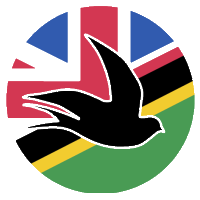The ongoing service running in Muheza is a testament to the sustainability of the approach of this project. With hernia repair numbers there now over 260, it was important to get the new eRegistry established and also to address the daunting prospect of uploading the historical paper records.
Through the Hereford – Muheza – Salisbury link, medical students Eve and Rebecca were warmly welcomed to Muheza on their elective in September / October (it is a popular destination). Alongside an excellent cultural and clinical experience, they kindly agreed to work with us to establish the eRegistry. Over 40 hours of hard work and determination resulted in the extensive paper records being uploaded. Pleasingly, there were very few data gaps / issues which is a testament to the diligence of the local Muheza team. However, committed to the aim of this exercise, Eve and Rebecca were very resourceful, triangulating with other resources and managed to resolve almost all of these.
Eve and Rebecca also trained the local team in use of the eRegistry which will make things going forwards so much easier. High quality data collection is so crucial to the quality assurance framework of the project. We are so very grateful to all their efforts. They had this to say:
We thoroughly enjoyed being part of this project during our medical elective in Muheza, Tanzania.
We were able to transfer over 250 paper records onto the e-registry during our four week placement and began to cross-reference other records to fill data gaps with the help of the surgical team. We trained Drs Boniface and Kibula to use the e-registry, so all new surgeries will be available online. Dr Boniface kindly showed us how the mesh hernia surgery works, which gave great perspective to the SWIFTSS project. Thank you to everyone at St Augustine’s hospital who made us feel so welcome. We had a fantastic experience!
